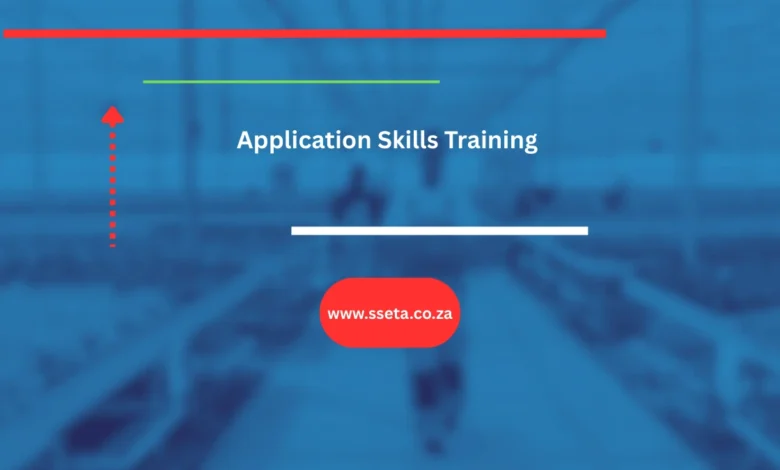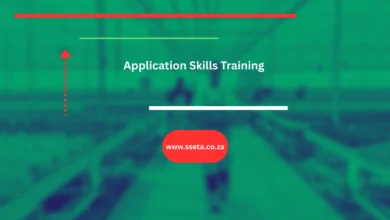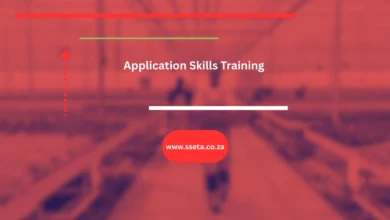Unlock Your Financial Future: A Complete Guide to the Finance Skills In-Training Programme 2025

Introduction: Building a Career in South Africa’s Finance Sector
South Africa’s financial industry is one of the strongest pillars of its economy. It powers investment, supports businesses, and helps families secure brighter futures. But for many graduates and young professionals, entering this space can feel intimidating. A major challenge is the skills gap—many companies need highly skilled finance professionals, but newcomers often lack the practical expertise to meet these demands.
The Finance Skills In-Training Programme 2025 steps in to close this gap. It’s designed to equip graduates and early-career professionals with hands-on skills, mentorship, and knowledge that align with today’s financial market needs.
This guide will walk you through everything you need to know about the programme—from its objectives and learning areas to application tips and future opportunities.
What is the Finance Skills In-Training Programme 2025?
The programme is a structured skills development initiative tailored to prepare finance professionals who can confidently enter the job market.
Main Objectives:
- Build a work-ready pipeline of finance graduates for South Africa.
- Provide practical training that complements university education.
- Address the shortage of finance experts in areas like risk management, data analytics, and investment strategy.
- Help South Africa’s financial institutions stay globally competitive.
The programme runs for a set period (usually 12 months) and combines classroom-style teaching with workplace-based learning.
Who Can Apply? Target Audience and Eligibility
The Finance Skills In-Training Programme 2025 is not limited to one type of candidate—it opens doors for graduates and young professionals who are passionate about finance.
Ideal Candidates:
- Recent university graduates with degrees in Finance, Accounting, Economics, or Business.
- Junior finance professionals who want to upskill or specialize.
- Candidates with strong analytical, numerical, and problem-solving abilities.
- Individuals eager to pursue careers in banking, auditing, corporate finance, or investment management.
Tip: Always check the official programme announcement for specific eligibility criteria, as some roles may require mathematical proficiency or prior exposure to financial systems.
Finance Skills In-Training Programme 2025
Key Learning Areas Covered
The programme focuses on practical finance skills that are relevant to both local and international markets.
Financial Analysis and Reporting
Learn how to read, interpret, and prepare company financial statements. You’ll understand how businesses measure profitability, identify risks, and plan future strategies.
Investment Management and Portfolio Strategy
Gain exposure to the world of investments. Learn how to evaluate stocks, bonds, and other assets, build portfolios, and apply strategies that balance risk and reward.
Financial Modelling and Data Analytics
Master Excel-based modelling and explore tools for big data analysis. These skills allow you to forecast earnings, value companies, and predict market trends.
Risk Management and Compliance
Understand the laws, regulations, and governance principles that shape South Africa’s financial system. You’ll learn how to spot risks and ensure compliance with financial standards.
Technology and Digital Finance
Discover how FinTech innovations, blockchain, and digital payments are reshaping finance. This prepares you for the future of work in a tech-driven financial world.
Why Finance Skills Training Matters in South Africa
1. High Demand for Finance Professionals
South Africa’s financial market is expanding rapidly, but many employers report shortages of skilled candidates—especially in auditing, financial analysis, and investment banking.
2. Boosting Career Opportunities
Graduates of the programme are well-positioned for roles such as:
- Financial Analyst
- Risk Officer
- Investment Associate
- Corporate Finance Specialist
These jobs often come with competitive salaries, career growth opportunities, and international mobility.
3. Supporting Economic Growth
By training more finance experts, the programme contributes to South Africa’s broader economic development. Skilled finance professionals help businesses make better decisions, attract investment, and create jobs.
Programme Delivery: How You’ll Learn
Flexible Learning Options
- Full-time study: Intensive training for those who want to fast-track their careers.
- Part-time study: Designed for working professionals who want to upskill without leaving their jobs.
Practical Training and Case Studies
Instead of focusing only on theory, the programme emphasizes real-world projects. You’ll work on case studies, simulate corporate decisions, and practice what you learn immediately.
Expert-Led Sessions and Mentorship
The sessions are conducted by industry leaders, finance managers, and investment professionals. Mentorship opportunities provide personalized guidance and networking advantages.
How to Apply for the Programme
The application process is straightforward but requires careful preparation.
Step 1: Gather Required Documents
- Updated CV
- Certified copies of academic transcripts
- Motivation letter explaining your interest in finance
Step 2: Complete the Online Application
Most applications are submitted through an official online portal. Make sure you fill in every section accurately.
Step 3: Prepare for Assessments and Interviews
Some candidates may be required to complete numerical reasoning tests, case studies, or interviews.
Important: Applications for the 2025 intake close on announced deadlines (always check the official site to confirm exact dates).
Tips to Strengthen Your Application
- Highlight academic achievements in finance, accounting, or economics.
- Show any internships, part-time work, or projects related to finance.
- Emphasize soft skills such as communication, teamwork, and problem-solving.
- In your motivation letter, explain how the programme fits your career vision.
What Happens After the Programme?
Graduating from the Finance Skills In-Training Programme doesn’t just give you a certificate—it positions you for long-term success.
Post-Programme Benefits:
- Access to career placement services.
- Networking with alumni and finance leaders.
- Opportunities for internships or permanent roles at leading firms.
- Lifelong skills that make you a competitive candidate globally.
Visual Guide: Career Path After the Programme
Infographic idea for your website (to make content visually appealing):
- Graduate with Finance Degree
↓ - Join Finance Skills In-Training Programme 2025
↓ - Gain Practical Skills + Mentorship
↓ - Work as Financial Analyst / Risk Officer / Investment Associate
↓ - Contribute to South Africa’s Economy
Frequently Asked Questions (FAQs)
Q1: Do I need work experience to apply?
Not necessarily. The programme is open to graduates, though prior experience is always an advantage.
Q2: Is there a stipend or financial support?
This depends on the institution offering the programme. Some may provide stipends, allowances, or bursaries.
Q3: What makes this programme different from university courses?
It focuses on practical, job-ready skills and industry exposure rather than purely academic learning.
Q4: Can I apply if I studied something other than finance?
Yes—graduates in related fields like economics, accounting, or business management are encouraged to apply.
Conclusion: Investing in Your Financial Expertise
The Finance Skills In-Training Programme 2025 is more than just another short course. It is a career-launching platform that combines education, mentorship, and real-world practice.
By bridging the gap between classroom knowledge and industry needs, this programme empowers graduates to:
- Step confidently into finance careers,
- Meet employer expectations,
- And contribute to South Africa’s growing financial system.
If you’re serious about a career in finance, this is your chance to invest in your future. Applications are open for 2025—don’t miss the opportunity to unlock your financial potential.



